June 18, 2018
Project Earth
20 alumni who are saving the planet
iStock/RomoloTavaniThe Time to Act is Now
Over the past century, with increased industrialization and a growing global population (which has almost doubled to more than seven billion people since I left Andover), humans have been asking more of the Earth’s resources than it can deliver within its natural bounds. We are significantly disrupting the ecosystems on which all life depends: overfishing our oceans, depleting the nutrients in our soils, polluting our water supplies, and rapidly destroying wildlife habitats and species.
Most critical is the unprecedented impact we are having on our climate, which is now warming faster than human civilization has ever experienced. Wherever you live around the world, you are likely already seeing the dangerous effects of a warming planet—such as rising sea levels, drought, wildfires, and extreme storms—imperiling our lives and livelihoods and putting our children’s and grandchildren’s future prosperity in grave jeopardy.
One key cause of this change is the way we produce and consume energy by burning oil, coal, and natural gas to power and heat our homes, businesses, and communities and to move people and goods around. While fossil fuels brought us the prosperity that many enjoy today, they pollute our air, endanger our health, and warm our planet with unprecedented implications.
With this extraordinary challenge comes extraordinary opportunity. We sit on the cusp of an exciting new era of innovation, where humans are coming together to redesign how we live and work in order to make our world healthier, cleaner, safer, and more prosperous for all.
—Amy Davidsen ’80, executive director of The Climate Group
Their mission is urgent, because saving the planet is really about saving the human race. From conservation and environmental law to renewable energy, green building, activism, and more, these 20 alumni are eco-warriors, green pioneers, innovators, and visionaries. All are working to protect and preserve our planet for future generations.
Sustainable Neighborhoods
What does the city of the future look like? Anthony “Tony” Nahas ’75 is piloting an ambitious project in Oakland, Calif., to take us there. Director of the EcoBlock Project, Nahas and a team of more than 30 engineers, policy experts, and urban designers are working with the University of California at Berkeley to develop a 100 percent sustainable neighborhood. Recognized as one of Scientific American’s Top 10 Emerging Technologies of 2017, the “new city” concept will apply existing renewable technologies to a block of 30 to 40 adjoining homes, reducing their fossil fuel and water consumption and ultimately cutting greenhouse gas emissions. The pilot program will serve as a global model for wide-scale sustainable redesign.
Accelerating Climate Action
 iStock/mirceax
iStock/mirceax
Ever since she was a young girl, Amy Davidsen ’80 had a profound love for Earth and all its creatures. She grew up in a small, rural Connecticut town, where she recalls her family’s landlord requiring them to cut down large bushes on the property. The bushes were home to several birds and rabbits. Worried about their welfare, she asked her mother, “What will happen to the animals?” Instead of cutting down the bushes, Davidsen’s mother moved her family to a new home. But when they passed by the old house one day, they saw the bushes were no longer there.
Over her lifetime, Davidsen has watched humans push plants and animals farther and farther into the woods. But with climate change, she says, there is nowhere farther to push.
As the executive director of The Climate Group, North America, Davidsen works to accelerate climate action by bringing together powerful networks of business and governments that shift global markets and policies. These partnerships have jumpstarted renewable solar energy access to rural consumers in Maharashtra, India; have enabled a China Redesign Program aimed at speeding up the deployment of low-carbon technologies, products, and services; are accelerating the electric vehicle market; and are raising climate awareness through Climate Week NYC each September.
“We already have the technology to solve 70 percent of the emissions reduction needed by 2050,” Davidsen says. “We just have to use it.”
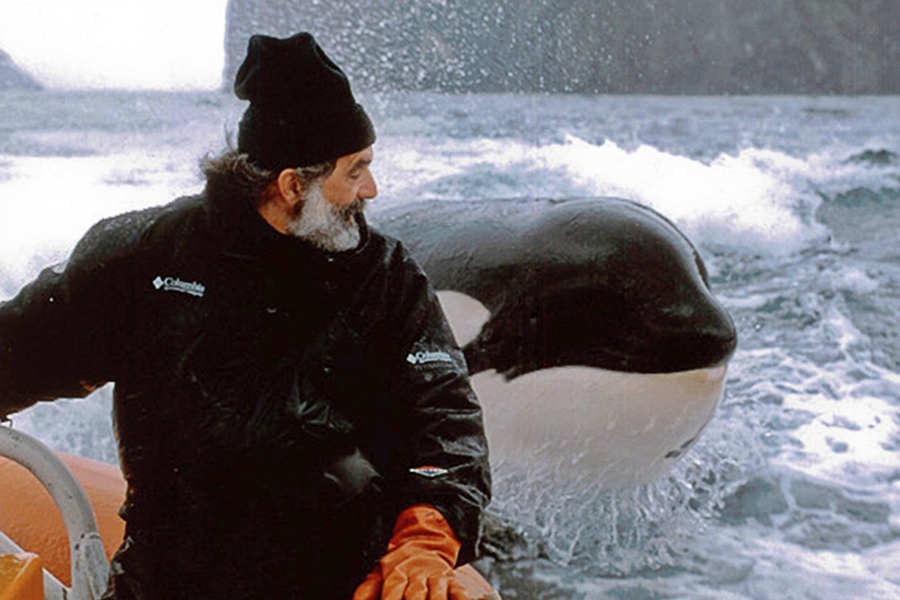 Submitted
Submitted
The Whale Whisperer
It is time, it is right, and if we do it, we will be better for it, and so will the whales.
”The ultimate direct-action man, Charles Vinick ’65 is a steward of the sea. For more than 25 years, he worked closely with Jean-Michel and Jacques Cousteau, helping the ocean explorers establish, grow, and sustain multiple conservation education initiatives, including cofounding the Cousteau Centers, Inc., and overseeing development of Park Oceanique Cousteau, an ocean education and entertainment complex in Paris. Vinick also helped usher in a new era for captive cetaceans (whales and dolphins) when successfully helping Keiko, the famous orca from the Free Willy movies, develop the skills necessary to survive in the open ocean and returning him to his birth waters in Iceland. Today, Vinick is making history again as the executive director of the Whale Sanctuary Project, the first program to establish a model seaside sanctuary where captive whales and dolphins can live as close as possible to their natural habitat. He hopes it will be replicated worldwide to provide quality of life for more than 3,000 whales and dolphins in marine parks around the world. “This is a huge challenge, but with the power of public opinion and social media, it is realistic and achievable,” Vinick says.
 iStock/zentilia
iStock/zentilia
Environmental Accountability
Everything we value depends on the ecosystem and on people working tirelessly to prevent its destruction. Kathy Mulvey ’84 is the sharp end of the long-running debate on fossil fuels, taking some of the world’s largest companies to task on inadequate climate policies. The accountability campaign manager and advocate for the Union of Concerned Scientists, Mulvey has organized action campaigns, overseen detailed corporate research and reports, and managed high-level coalitions. The go-to source for climate and energy information at major news outlets worldwide, Mulvey doesn’t shy away from calling out corporate cover-ups or demanding stricter policies and aggressive action for a low-carbon world.
A Case for Clean Energy
As the world scrambles to find a fuel supply that doesn’t exacerbate global warming, Ted Nace ’74 is full of ideas—and offers a solution. Nace, who has authored two books on climate action, launched CoalSwarm in 2007 in an effort to phase out coal in favor of renewable power sources. The organization provides continually updated data on existing and proposed coal plants that is actively used by climate researchers, business information services like Bloomberg, and divestment activists.
Working with Nace is James Browning ’87, CoalSwarm’s director of development. In 2017, CoalSwarm joined scores of environmental groups for a meeting in Lofoten, Norway, resulting in the Lofoten Declaration, which calls on governments to begin the managed decline of the world’s fossil-fuel production zones. To date, it has been signed by more than 500 nongovernmental organizations globally.
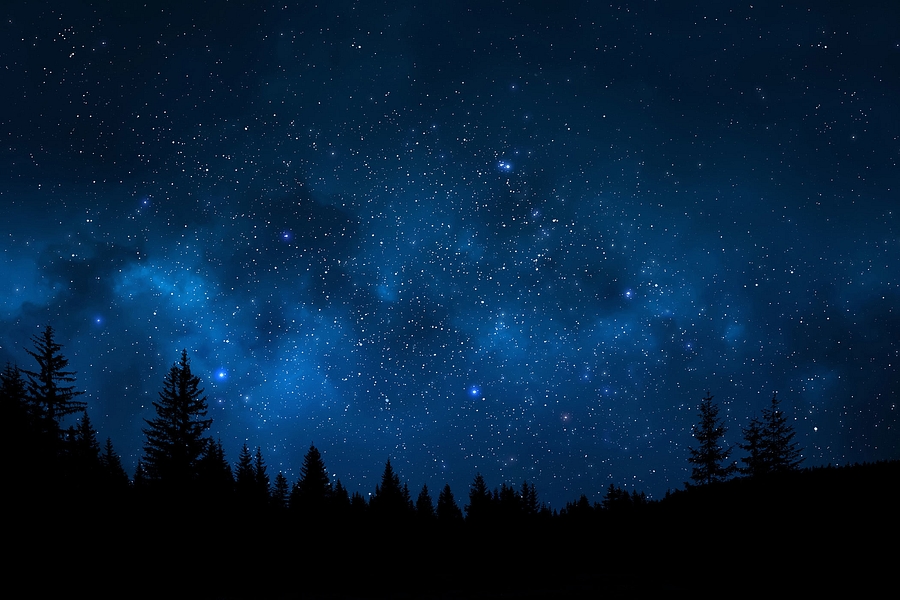 iStock/pixelparticle
iStock/pixelparticle
The Best Stargazing in America
Pure, unobstructed stargazing is a rarity in the United States—nearly 80 percent of North Americans live in areas where light pollution obscures most of the night sky. For nature to be appreciated and, more importantly, protected, it takes tireless efforts from grassroots activists like Ann Hill ’59 and her husband, Paul, to make some noise for blazing a greener path. Last year Hill helped establish America’s first-ever (and the 12th worldwide) dark sky reserve. Based in central Idaho, around 125 miles northeast of Boise, this exceptionally dark area spanning more than 900,000 acres reduces the negative effects of light pollution and makes for a perfect view of the night sky—the way nature intended. Hill and her husband also played a role in advocating for the protection of Idaho’s stunning Boulder-White Clouds region as wilderness. More than 275,000 acres—one of the largest intact roadless areas in the country—went into permanent protection under federal law in 2015.
Environmentally Sustainable Actions on Campus
For as far back as the early 19th century, Andover has shown a deep respect for its natural environment. PA alumnus Frederick Law Olmstead, considered the godfather of landscape architecture, developed an early Campus Landscape Plan for Andover in the late 1800s and his firm, Olmsted Brothers, worked on a consulting basis for Andover for more than 60 years.
That focus on sustainability continues today. The Strategic Plan and the Campus Master Plan both call for Andover to create and maintain “an environmentally responsible learning community.” From green buildings to smarter waste management practices, here’s a sampling of some of the policies, practices, and programs making the campus more eco-friendly and efficient.
- 43
- 57
43%
Building materials sourced within 500 miles
The Paresky Commons renovation procured 43 percent of building materials from manufacturers within 500 miles and 82 percent of wood products from foresters certified by the Forest Stewardship Council.

3
LEED Buildings on campus
PA has 3 Leadership in Energy and Environmental Design (LEED) buildings on campus: Paresky Commons, Silver; Sykes Wellness Center, Gold; and Snyder Center, Platinum. Administered by the U.S. Green Building Council, the LEED program measures and certifies sustainable building design and construction.

740
Megawatt solar array
With the addition of a 740-megawatt solar array on the roof of the Snyder Center (1,778 panels to be exact!), Andover now has three solar energy installations.

1.8 tons
of food composted
Each week, Paresky Commons serves approximately 25,000 meals. Using a zero waste strategy, 1.8 tons of food scraps are sent for composting and more than 1 ton of cardboard is recycled.

19
Geothermal wells
The Rebecca M. Sykes Wellness Center uses 19 geothermal wells for heating and cooling. In the last 12 months, the system has produced about 1.5 billion BTUs of renewable energy.

10 trees, 18 tables
Using wood from 10 trees that were removed during construction, master furniture maker Strother Purdy ’85 made 18 tables for Bulfinch Hall during its 2012 renovation. Purdy has found new life for other felled trees on campus, making pieces for the Sykes Wellness Center, the Snyder Center, and a special new table to commemorate the 50th anniversary of Af-Lat-Am.

15 tons
of materials donated to goodwill
Last year, PA donated approximately 15 tons of materials, primarily to Goodwill Industries of Northern New England. Proceeds from these items fund Goodwill’s Life Work Service Program, which provides community services to individuals with disabilities.
Solutions for Developing Countries
A beacon of eco-responsibility, Jamal Gore ’88 has spent the past 15 years in the United Kingdom putting pressure on industrial polluters and helping developing countries plan their response to climate change. The cofounder of a London-based carbon management consultancy, Gore is a key international speaker on global warming and carbon management. He has secured private sector financing for dozens of renewable energy projects in developing countries, including agricultural and energy initiatives in Kenya and emissions reduction in the Sudan. Knowing his children’s future depends on our actions today, Gore is a tireless advocate for sustainable practices and walks the walk. He has solar panels on his roof, drives an electric car, installed LED lights throughout his home, and spends his waking hours putting good climate policies into action.
Turning Poop Into Power
According to UNICEF and the World Health Organization, 70 percent of the population in sub-Saharan Africa lacks access to adequate sanitation. But what if we could turn human waste into energy?
In Kigali, Rwanda, Ashley Murray Muspratt ’97 engineered a groundbreaking disposal method that successfully converted fecal sludge into salable fuel, which was purchased by local industries. The ambitious operation is a model approach to waste treatment—one that is cheaper, easier, and better for the environment. In January, Muspratt cofounded 30 Degrees, a startup based in western Massachusetts that provides consulting services on the design, engineering, and operation of fecal sludge management systems. Her mission: reinvent the economics of waste treatment and spread sustainably operated fecal sludge management systems to cities across the globe.
Championing Truth
Transparency is a key to change. And in an age where rumors spread with frightening speed on social media and facts are disputed as “fake news,” the business of transparency is more challenging than ever, and no less necessary.
 iStock/Olivier Le Moal
iStock/Olivier Le Moal
An environmental reporter at KPCC, a National Public Radio affiliate serving Southern California, Emily Guerin ’04 explores people’s connections to the environment in the American West. Her research, multimedia journalism, and memorable feature reports have kept the public informed on crucial quality-of-life issues and have earned her multiple accolades, including two regional Edward R. Murrow awards for stories on oilfield spills.
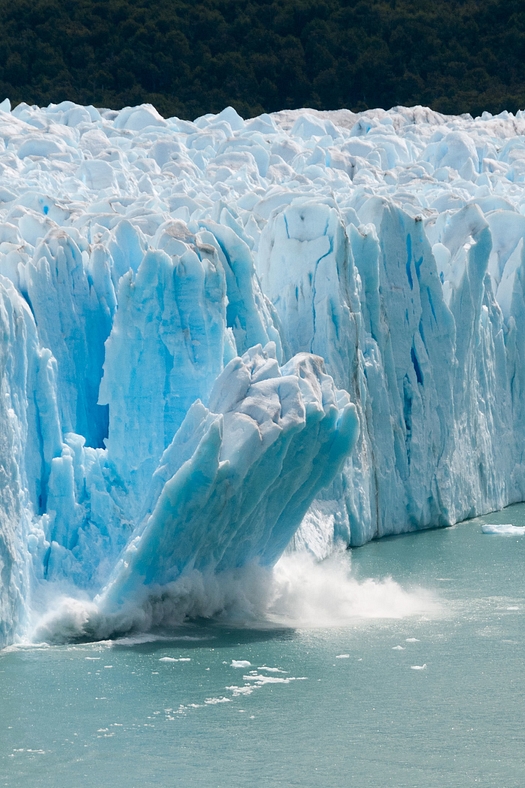 iStock/DurkTalsma
iStock/DurkTalsma
Making Sense of Climate Costs
Policymakers, business leaders, climate activists, and the broader public are turning to Jisung Park ’04 to make sense of climate costs. Park’s introductory economics class at Andover gave him an entirely new lens to view the world, through which he recognized climate change is the “ultimate global public good problem” and that economics could be a tool for helping people better understand and take action against its disastrous effects. Park is the founder and codirector of Sense & Sustainability, a nonprofit dedicated to cultivating leaders with a holistic understanding of sustainability and equipping them with the skills and knowledge necessary to pursue solutions. His groundbreaking research at Harvard University sheds light on how climate change will affect human productivity and economic health.
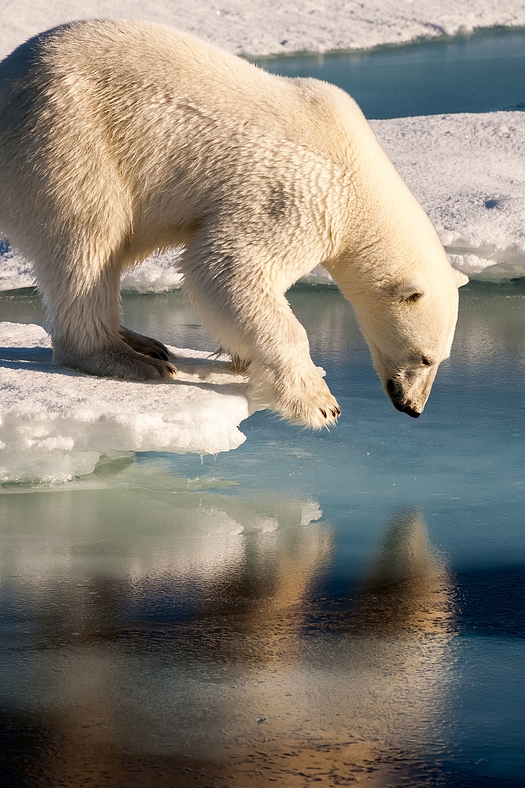 iStock/Mario_Hoppmann
iStock/Mario_Hoppmann
Responsible Investments
Investors can make all the difference in sustainable initiatives getting off the ground and gaining steam. Since 2006, the family-led public charity Rockefeller Family Fund has focused its environment program almost exclusively on climate change. President David Kaiser ’87 leads funding efforts on several fronts to reduce the risks of global warming, including reducing food waste and creating sustainable food systems in Africa; Smart Power for Rural Development, a $75 million initiative to address energy deficiencies and create green power solutions in developing countries; and Planetary Health, which aims to stem death and disability rates caused by pollution. In 2016, Kaiser also divested RFF’s holdings in fossil fuel companies and spearheaded an ongoing investigative journalism project to determine what big oil companies really knew about climate science.
The Climate Crisis In Pictures
A former staff reporter at the Boston Globe for 25 years, David Arnold ’67 has traveled the world photographing some of nature’s most dramatic creations, from the Matterhorn in the Swiss Alps to massive coral reefs in the Caribbean. Returning to the same locations in nature photographed by others decades earlier, Arnold replicates the images. His recent pictures of glaciers and coral reefs, when compared with the originals, provide a shockingly stark contrast and have given academic institutions, researchers, scientists, and the public a valuable view on the state of our planet.
It’s a critical time for the planet, but people, stresses Arnold, can change the course of the future. “We are voters and we are consumers,” he says. “We have much power.”
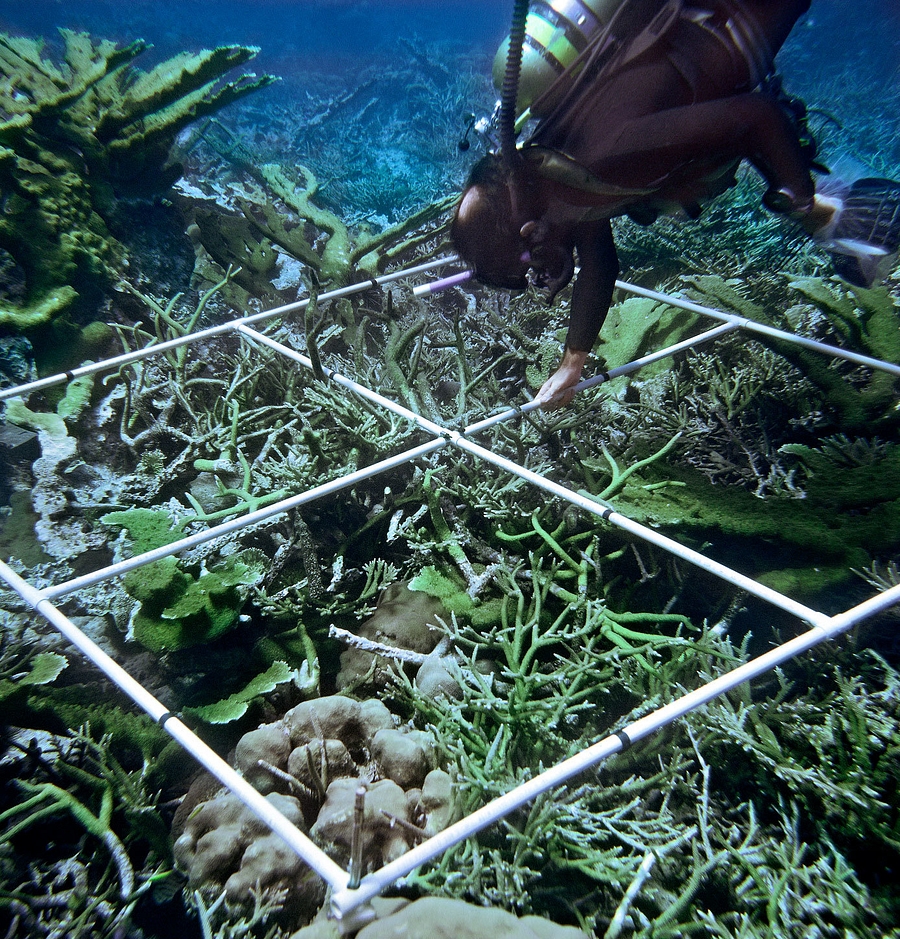
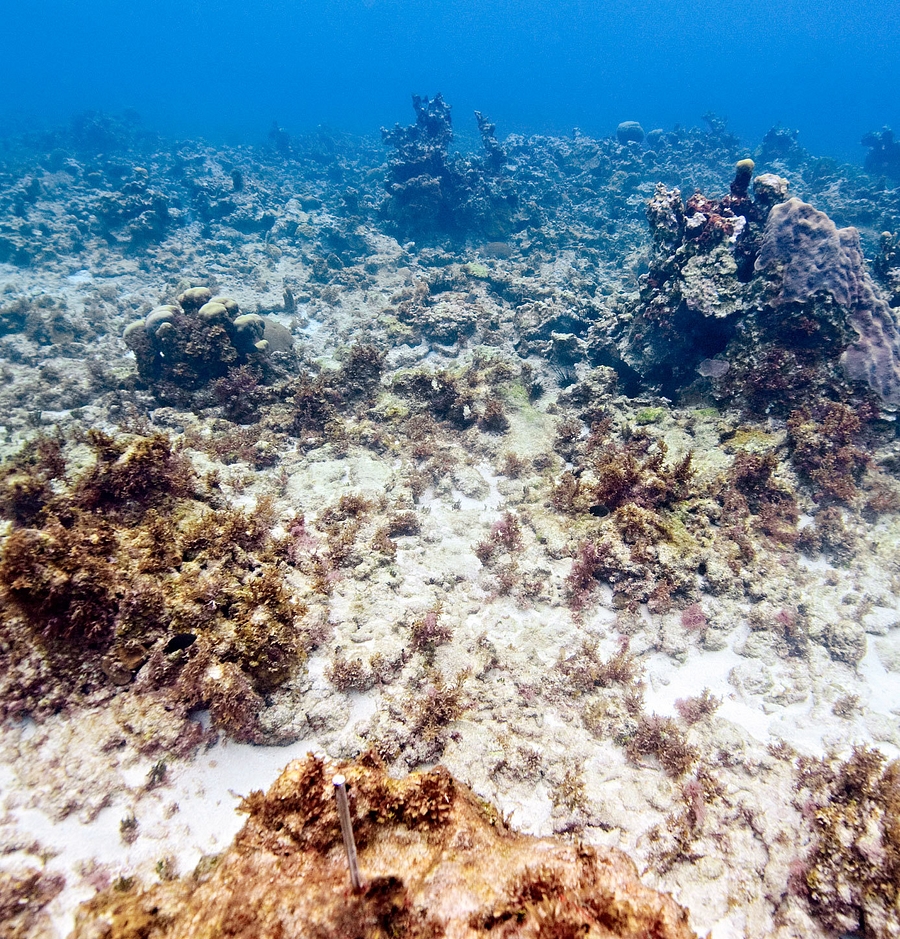
Earth Justice
Not only has Theda Braddock ’67 practiced environmental law for more than 20 years, she also has written the book on it. The author of the Washington Environmental Law Handbook (now in its fifth edition), Braddock has also written books on wetlands regulation that introduce and address ecology and key topics on case law, interpretation, commentary, and permitting, which dive deep into protecting natural resources. She is currently working on the California Environmental Law Handbook slated for publication later this year. Her extensive knowledge and experience have students flocking to the four classes she teaches at the University of Washington in Tacoma, where she is an adjunct professor in the Sciences and Mathematics Department as well as the Law and Policy Department. Braddock is also a sailor and has taught sailing for the Command, Seamanship, and Navigation Training Squadron at the U.S. Naval Academy.
Great Elm Video
Fashion To Feel Good About
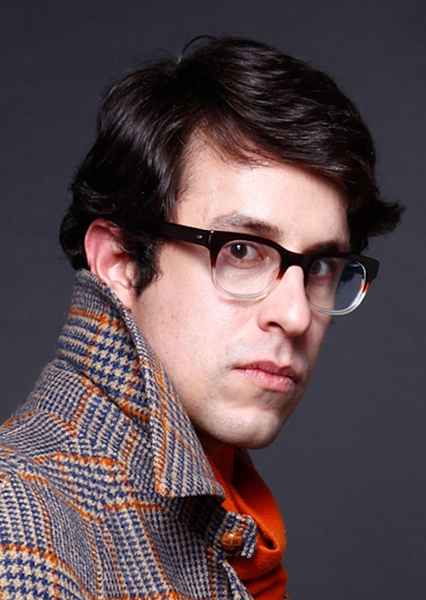
Nels Frye ’99 is putting a new spin on what it means to be style conscious. Flagged as one of the world’s biggest sources of pollution by environmental watchdogs, the apparel industry reportedly emits more greenhouse gas than international shipping and aviation combined.
A longtime purveyor of vintage fashion, Frye, along with his wife and business partner, Jia Wenting, opened a boutique for higher-end preloved garments in Shanghai, where a market for designer vintage clothes didn’t exist until recently. Historically, says Frye, pre-owned clothes were considered unsanitary and unattractive in China’s most populated and fashion-forward city. His 2,000-square-foot shop, Pawnstar, broke ground in 2017 as one of the city’s first secondhand stores that focuses on sourcing items locally. Shoppers, Frye says, can reduce the environmental cost of fast fashion by buying smarter. That includes choosing eco-friendly fabrics, buying clothes made from recycled content, and wearing garments longer.
Ultimately, we are only making a tiny contribution to a huge problem, but we hope that our presence in the fashion capital will change the way people think, making them more aware that their own purchases contribute to the same problems—like climate change and pollution— that they may in fact bemoan on a daily basis.
”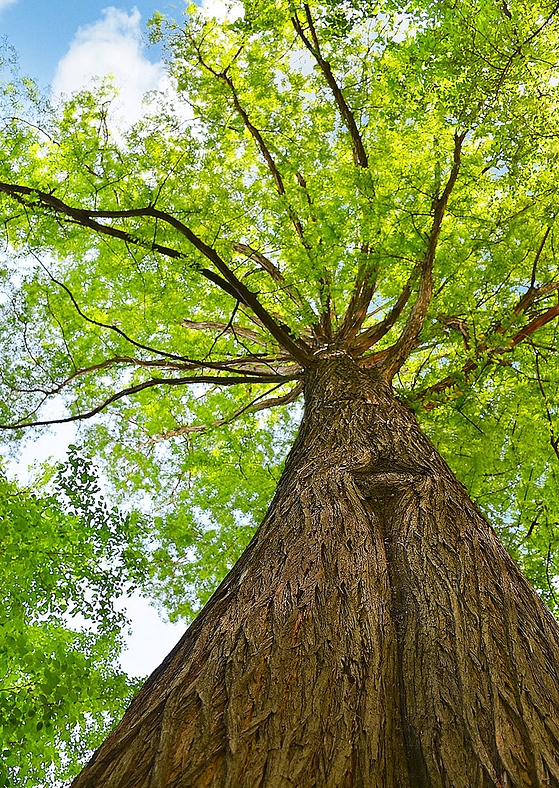 iStock/puflic_senior
iStock/puflic_senior
Guardian of the Forest
The year 2017 was an extreme one for weather: devastating hurricanes, floods, and, according to the National Interagency Fire Center, more than two million acres of land ravaged by wildfires. Alexander Evans ’91, executive director of the Santa Fe–based nonprofit Forest Stewards Guild, specializes in ecological forestry that is working to change wildfire behavior in the scorched West. Combining science with centuries-old ancestral logging practices, Evans, who has a doctorate from the Yale University School of Forestry and Environmental Studies, is working to restore forests to more natural conditions. By creating areas for large trees that are free from leaf litter and dead wood, similar to what was historically maintained on the landscape by indigenous people, the forest becomes more resistant to catastrophic fire. His research and practice in wildfire mitigation could make all the difference in preserving New Mexico’s pinelands as global temperatures rise.
A Quest for Sea Change
 iStock/Grape_vein
iStock/Grape_vein
No one can doubt the persuasive powers of Margot Stiles ’95, chief of strategy at Oceana, a nonprofit organization with a mission to protect and restore the world’s oceans. Stiles joined Oceana as a scientist working on responsible fishing and seafood fraud issues. As Oceana’s representative in the Southeast, she has worked closely with both the government and the private sector to protect 23,000 square miles of deep-sea coral stretching from North Carolina to Florida. Stiles currently leads a team offering strategy development and coaching to staff in Belize, Brazil, Canada, Chile, Peru, and the Philippines. While working in Belize, she helped Oceana negotiate a nationwide ban and buy-out of trawl vessels to protect the Belize barrier reef.
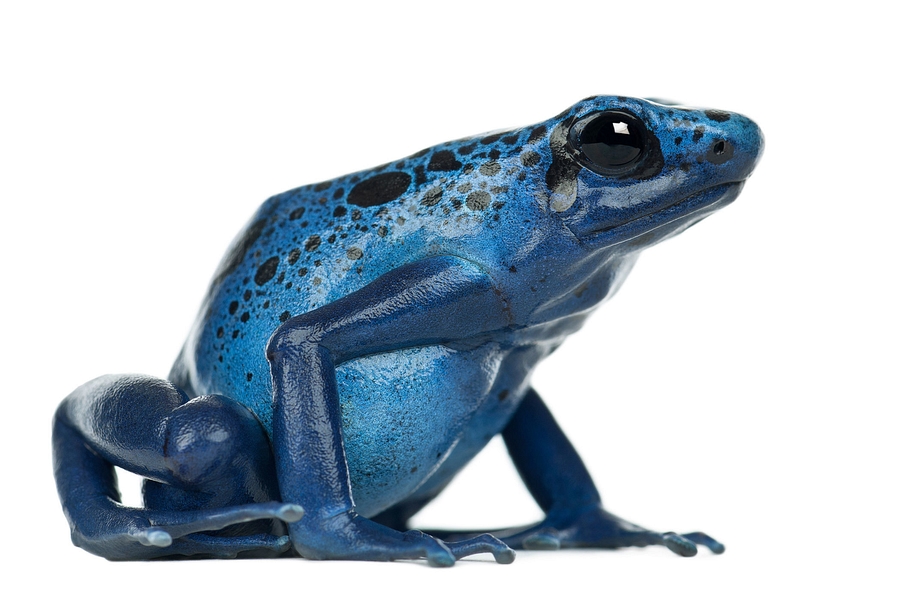 iStock/GlobalP
iStock/GlobalP
Saving the Frogs
It’s estimated that 200 species of frogs have become extinct since the 1970s. Because amphibians naturally go extinct at a rate of only about one species every 500 years, ecologists fear the grim facts are a harbinger of greater biodiversity loss to come. Enter Kerry Kriger ’92. The conservation biologist founded Save the Frogs! in 2008, an organization that has become the world’s largest public charity directed exclusively to amphibian conservation. The keystone of many ecosystems, frogs eat mosquitoes, provide us with advances in medicine, and serve as food for other species; their tadpoles even filter drinking water. Kriger has traveled the world, raised thousands of dollars, created educational programs, and changed federal law, all to protect the Earth’s amphibians.
 Roberto Linsker/ISA
Roberto Linsker/ISA
Sustainable Farming in the Amazon
Deep in the Amazon, food is the crossroads between culture and nature. It’s also where 24-year-old Felipe Storch de Oliveira ’12 is this generation’s face of conservation.
Growing up in Rio Branco, Brazil, Storch loved eating the sweet red berries from an acerola tree in his backyard. Living so close to the exquisite beauty of the Amazon rainforest instilled a deep appreciation for nature’s gifts early on. But he soon learned that his beloved forest was in grave danger.
Since 1978, the Amazon—regarded as the world’s most important ecosystem—has lost some 289,000 square miles to logging, farming, ranching, and industry.
“I thought protecting the rainforest was my responsibility,” Storch recalls. So he borrowed copies of National Geographic in English to learn the language, believing it would help him convince a broader audience to stop deforestation. He later realized he would have to venture beyond Brazil to further his cause.
At Andover, he learned that education is crucial in making a difference. Following graduation, he attended Franklin & Marshall College where he majored in environmental studies and economics. Now, back home in Brazil, Storch is helping communities along the Amazon use the foods they’ve been harvesting for thousands of years to block deforestation.
An analyst in social-environmental business at Brazil’s Instituto Socioambiental, Storch is helping indigenous groups structure business and marketing models for products from the Rio Negro traditional agricultural system. Many of them are still unknown in the United States, including certain nuts, Tucupi (a yellow sauce extracted from wild manioc root), and honey from native bees. The partnership involves local people and government officials as well as chefs who test the foods for cooking and consumption. Most recently, Pimenta Jiquitaia Baniwa peppers were made available for sale in the United States, with the majority of proceeds coming back to the Baniwa women.
The business model, Storch says, also gives the local people an income alternative against potential deforestation, drug trafficking, and cattle ranching. Having a sustainable alternative as a form of income is improving the quality of life in the Amazon’s remote communities, and is helping Storch win the battle of hearts and minds in preserving his beloved rainforest, despite the overwhelming odds.



